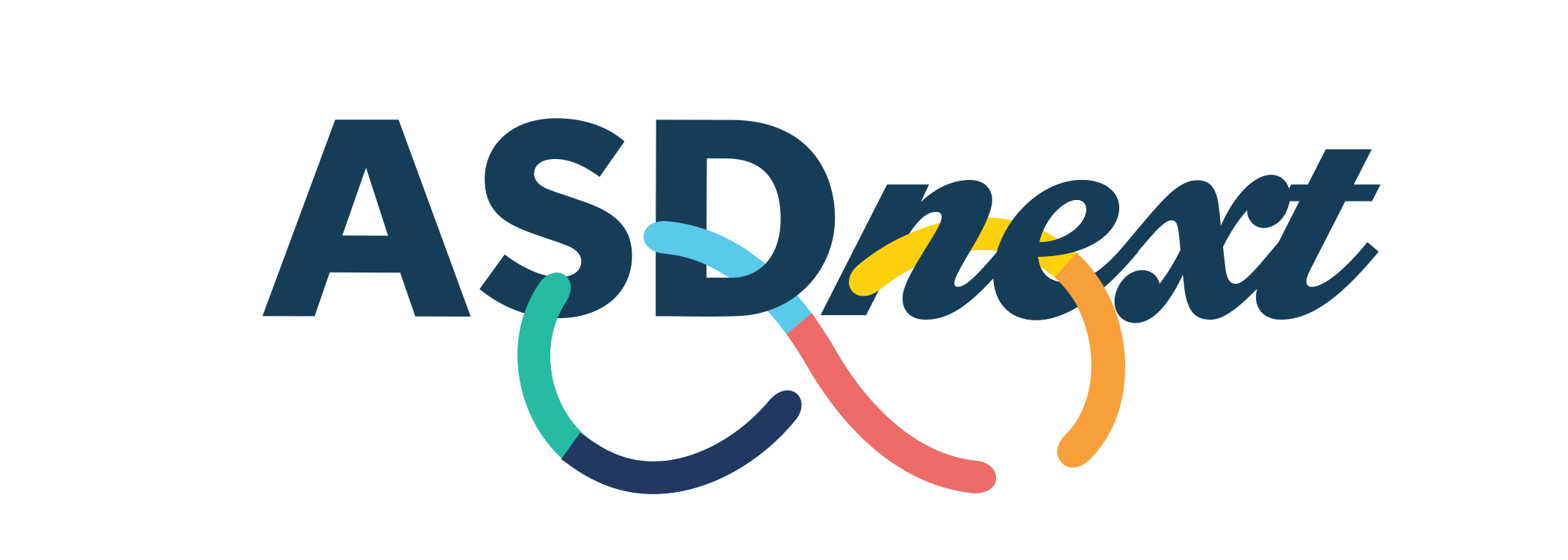Positive Approaches Journal, Volume 10, Issue 3
Wong | 75-85

Volume 10 ► Issue 3► November 2021
Peer Support:
Innovative Models Across Systems and Populations
Mi-Yeet Wong
Abstract
Peer support utilizes the transformative power of lived experience to make an impact in people’s lives. This article provides brief background information on peer support services, emerging peer support models, and the future of peer support.
___
Introduction
A self-advocate once poignantly said during a conference session, that effective systems change happens when people who have the most to lose, are also the ones making the decisions. While the aim of that talk may have been focused on how effective systems change for racial equity should proceed, he was also conveying that lived experiences and stories are not only important, but powerful in creating change. The model of peer support services, which is based upon the value of lived experiences, and the philosophy for supporting individuals through shared understanding, are critical for systems change. In this article, background information on peer support services, emerging peer support models, and the future of peer support will be discussed.
Background of Peer Support
Peer support workers are “people who have been successful in the recovery process who help others experiencing similar situations. Through shared understanding, respect, and mutual empowerment, peer support workers help people become and stay engaged in the recovery process and reduce the likelihood of relapse.”1 Peer support workers engage in a myriad of activities in supporting others, including advocacy, sharing resources, building skills, fostering community and relationships, leading recovery groups, and mentorship and goal setting.1 There are foundational principles that guide the practice of peer support, including the philosophy that practice should be recovery-oriented, person-centered, voluntary, relationship-focused, and trauma-informed.1 These principles carry themselves across systems as well. For example, some of the very same values of the Everyday Lives Values in Action mirror these principles – person-centered decision making; the promotion of health, wellness, and safety; being able to trust the people that support you to honor and respect your right to make your own informed decisions.2
The history of peer support can be found in writings from the late 18th century when hospitals were hiring former patients to work in a psychiatric hospital as they were “…usually more gentle, honest and humane.”3 Since then, peer support has expanded to serve diverse populations, within a variety of treatment settings, and is recognized as an evidence-based practice that is Medicaid reimbursable.4 While peer support has its history in the mental health field, it has rapidly crossed systems, populations, and disciplines. In Pennsylvania, peer support has been used as a model to serve family systems, the criminal justice system, older adults, and individuals with developmental differences.
Family System
Family Peer Support Specialists use their lived experience as caregivers of children, youth or young adults experiencing emotional, behavioral, or co-occurring challenges.5 They support other parents or family members through activities such as empathetic listening and emotional support, navigating systems, providing information about systems or community resources, providing advocacy and support, and encouraging self-care activities, to name a few.5 When we talk about cross-systems successes, the importance of having Family Peer Support Specialists cannot be emphasized enough. Not only are Family Peer Support Specialists navigating family systems and dynamics, but they are also navigating community systems and resources. Family Peer Support Specialists are integral to service provision because they serve as a model for what successful collaboration can look like between systems and families, they can ease the demand placed on systems, and above all else, serve as a support for which families can turn to so that they know they are not the only ones navigating the challenges and that they too, can learn skills to care for themselves, advocate for their family members and even change the very systems that are not serving them.
Criminal Justice System
Peer Specialists can also be found within the justice system context. Forensic Peer Specialists are individuals with a history of mental health diagnosis and/or incarceration, who provide individualized support to others with psychiatric disabilities and criminal justice involvements.6 Forensic Peer Specialists create change by supporting people throughout their involvement in the criminal justice system, promote recovery principles including self-advocacy, advocate for their recipients, educate people about Mental Health Recovery and inspire hope by sharing their life experiences.6 Forensic Peer Specialists work in various settings including crisis intervention teams, state hospitals, emergency rooms, jails/prisons, community settings, and many other places that their recipients are. 6 They support individuals in understanding and navigating the criminal justice system, obtaining employment and housing, completing parole/probation requirements, reducing the time individuals stay in jail due to lack of community supports or basic needs, and identifying positive supports.7 As an example, the PA Statewide Forensic Peer Support Specialist Program is a project funded by the Pennsylvania Commission on Crime and Delinquency (PCCD) in cooperation with the Office of Mental Health and Substance Abuse Services (OMHSAS).8 Their collaborative efforts have included several entities, including Drexel University, and have thus far completed three 3-day forensic trainings for current peer specialists and a train-the-trainer workshop.8
Older Adults
Peer specialists also work with older adults with behavioral health issues on activities such as crisis support, development of community roles and natural supports, individual advocacy, self-help and self-improvement.9 The Certified Older Adult Peer Specialist (COAPS) Program is a partnership between the Center for Mental Health Policy at the University of Pennsylvania, the Office of Mental Health and Substance Abuse (OMHSAS) and the Pennsylvania Department of Aging (PDA).9 COAPS work with older adults in various settings including senior centers, senior housing units, and health clinics.9 COAPS teaches Certified Peer Specialists to support older adults on a variety of issues including physical and mental health, normal aging, cultural competence, anxiety, depression, trauma, substance use, stages of change and more.9
Developmental Differences
Peer support is a fundamental service of Centers for Independent Living, which are federally funded programs across the United States that offer community living supports for all individuals with disabilities.10 Additionally, with the peer support model being embedded across multiple systems and serving a variety of populations, it has also made its way to an innovative program called the Community Autism Peer Specialist (CAPS) Program which serves individuals on the Autism Spectrum.11 CAPS provides 75-hours of training (aligning with the Certified Peer Specialist model in the mental health system) which provides a foundation for the individual to become a peer support professional who also has the personal lived experience as individuals on the Spectrum. CAPS is the culmination of a partnership between many stakeholders and entities, including self-advocates, caregivers, peer specialists, provider, state, local, and university partners. CAPS works with participants on goals that the participant identifies as important to them, which may include community, employment, education, or advocacy goals. Beyond these goals though, is the impact of having someone with lived experience who works with a participant to build a mutual relationship, which can alleviate isolation and promote connection, communication, and goal development.
The Future
While the programs highlighted are only a few of the many models to support a variety of populations, they are nonetheless exciting to consider when we think about the transformative impact that peer support has had on people and systems. As we look to the future, these peer support models continue to meet a much-needed gap in service for individuals, employment opportunities that emphasize lived experience, and an asset to alleviate the workforce shortage crises in human services. With people reassessing what it is they want out of their employment, and with a poor unemployment rate among the disability population,12 peer support can create employment opportunities for people with lived experience while alleviating the demand placed upon systems. Some of these programs will work towards certification, others will work towards program expansion, and still others will work towards developing the capacity to measure outcomes and the impact of peer support. There is no doubt that as the importance of lived experience becomes increasingly salient, the evolution of peer support will continue to expand in dynamic ways across systems and environments.
References
1. Peers. SAMHSA Substance Abuse and Mental Health Services Administration website. https://www.samhsa.gov/brss-tacs/recovery-support-tools/peers. Last Updated: 09/29/2021. Accessed October 15, 2021
2. Pennsylvania Department of Human Services, Office of Developmental Programs. Everyday Lives: Values in Action. 2021. https://www.dhs.pa.gov/Services/Disabilities-Aging/Documents/Everyday%20Lives/Everyday%20Lives%CB%90%20Values%20In%20Action%20(c_241391).pdf. Accessed October 15, 2021.
3. Davidson L, Bellamy C, Guy K, Miller R. Peer support among persons with severe mental illnesses: a review of evidence and experience. World Psychiatry. 2012;11(2):123-128. doi:10.1016/j.wpsyc.2012.05.009.
4. Philadelphia Dept. of Behavioral Health and Intellectual Disabilities Services and Achara Consulting Inc. Peer Support Toolkit. http://dbhids.org/wp-content/uploads/1970/01/PCCI_Peer-Support-Toolkit.pdf. 2017. Accessed October 15, 2021.
5. PA Care Partnership County Collaborative monthly call. Family Peer Support Specialist a Pennsylvania Overview. https://www.pacarepartnership.org/uploads/County_Collaborative_Family_Peer_PowerPoint_11-27-18.pdf. Published November 27, 2018. Accessed October 15, 2021.
6. Baron R. Forensic Peer Specialists: An Emerging Workforce. Policy Brief June 11 Forensic Peers. http://www.pacenterofexcellence.pitt.edu/documents/Policy_Brief_Jun_2011%20Forensic%20Peers.pdf. Published June 2011. Accessed October 15, 2021.
7. Forensic Peer Support Project. Pennsylvania Mental Health Consumers' Association. https://www.pmhca.org/Forensic-Peer-Support Accessed October 15, 2021.
8. Statewide Forensic Peer Support Specialist Program. PMHCA. Pennsylvania Mental Health & Justice Center of Excellence. Drexel University. http://www.pacenterofexcellence.pitt.edu/documents/About%20FPS%20--%205_09_11.pdf. Accessed October 15, 2021.
9. COAPS Certified Older Adult Peer Specialists. http://olderadultpeerspecialists.org/why-coaps. Accessed October 15, 2021.
10. Salzer MS, Rogers J, Salandra N, et al. Effectiveness of peer-delivered Center for Independent Living supports for individuals with psychiatric disabilities: A randomized, controlled trial. Psychiatr Rehabil J. 2016;39(3):239-247. doi:10.1037/prj0000220.
11. Community
Autism Peer Specialist (CAPS) Program. Philadelphia Autism Project. https://www.phillyautismproject.org/peer/.
Accessed October 15, 2021.
12. Persons with a Disability: Labor Force
Characteristics - 2020. News Release. Bureau of Labor Statistics. U. S.
Department of Labor. https://www.bls.gov/news.release/pdf/disabl.pdf.
Published February 24, 2021. Accessed October 15, 2021.
Biography
TMi-Yeet Wong, LCSW works at the Policy and Analytics Center at the A.J. Drexel Autism Institute. Ms. Wong uses her prior experience as a Case Manager for adults with developmental differences to contribute to her current work in supporting individuals, their family members, and the community through program development and resource navigation.
Contact Information
Mi Yeet Wong,
Policy and Analytics Center (PAC), A.J. Drexel Autism Institute, Drexel University
3020
Market Street, Suite 560, Philadelphia, PA 19104
Phone Number: 215-571-3209




